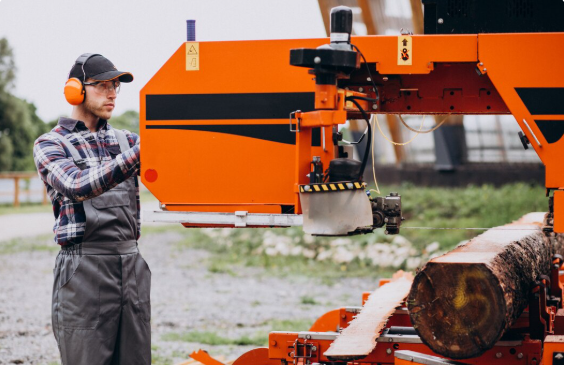When you need heavy-duty equipment for material processing, whether for construction, demolition, recycling or landscaping, one pivotal decision is whether to hire crushers, screens and shredders in New Zealand. In this guide, we explore what’s involved, how to select the right gear, typical cost considerations, and best practices to get value and efficiency from your hire.
What Does Hiring Crushers, Screens and Shredders Mean?
These machines are essential for breaking down and sorting materials.
- Crushers reduce large chunks of material (rock, concrete, etc.) into smaller, more manageable pieces.
- Screens separate materials by size—removing fines or classifying aggregate size.
- Shredders handle tougher, bulkier materials (wood, green waste, sometimes concrete or mixed waste) to reduce volume and prepare for further processing.
Hiring rather than buying equips allows you to access powerful machinery without the full capital cost, maintenance burden or long-term storage.
Types of Machines & Their Uses
Here are common kinds of crushers, screens, and shredders you’ll encounter when looking to hire in NZ.
Key Considerations Before Hiring
1. Project Type & Material
What are you processing—rock, concrete, green waste, mixed demolition? Some machines handle mixed loads better than others, and some shreders are more suited to wood or softer materials. Matching the machine to the material ensures efficiency and reduces risk of damaging the equipment.
2. Capacity & Output Requirements
You’ll need to estimate volume and throughput: how much material per hour or per project. Machines differ widely in throughput (tonnes/hour or cubic metres/hour). If you hire under-powered or under-sized equipment, you’ll lose time; too large, and you may pay for unused capacity.
3. Transport, Setup & Site Conditions
Hiring involves logistics: are the machines mobile or modular? How easy they are to move on/off-site, set up, and operate considering terrain, access, power/fuel. For example, some crushers have track mounted designs for easier mobility.
4. Hire Terms & Costing
Consider:
- Dry hire vs operator-included hire
- Long-term vs short-term rates
- Transport, fuel, parts, maintenance responsibilities
- What happens in case of damage or unexpected downtime
Prices vary by region, machine type and hire period. Always get detailed quotes.
5. Compliance, Health & Safety, Environmental Impact
All machines must meet NZ safety regulations, environmental standards, emissions rules and proper disposal or reuse of processed material. Using shredders, screening etc. helps with waste reduction and sustainable practices. Some shredder types can reduce transport emissions by reducing volume.
Examples of Hire Options
Here are some examples from New Zealand hire providers, to illustrate what’s available:
- Mobile Screening & Crushing Ltd offers a broad fleet: crushers, screens, conveyors, shredders, trommels. They provide dry hire or lease-to-buy packages.
- Crush & Screen Ltd has late-model jaw and impact crushers, screens and stackers for short- or long-term hire, nation-wide transport.
- Echo Hire (Nelson/Tasman region) provides mobile shredders such as the Arjes Impaktor, handling materials including concrete, green waste, timber, and disposal on site or at their yard.
How to Choose the Right Hire Provider
When selecting a hire company for crushers, screens and shredders in New Zealand:
- Reputation & Maintenance: Choose firms with well-maintained machines, good reviews and responsive support.
- Flexibility: Can the provider adapt to changes (site conditions, output targets)?
- Technical Advice: Do they offer guidance on machine type, size, output?
- Location & Transport Logistics: Face high transport or mobilization costs if provider is far.
- Rates & Terms Transparency: Ensure costs, uptime guarantees, insurance, damage policy are clear.
Cost Ranges & What Affects Them
While actual costs depend heavily on location, machine type, and hire duration, here are some broad factors that affect cost:
- Size and capacity (small mobile shredder vs large high-speed shredder)
- Distance for delivery and removal
- Operator vs dry hire
- Fuel consumption and power usage
- Wear parts and maintenance (e.g. screens, hammers in shredders)
- Environmental or compliance costs (permits, noise mitigation, dust suppression)
Benefits of Hiring
- Reduced capital outlay: Avoid the large upfront cost of buying.
- Access to modern machines: Higher efficiency, better safety, better productivity.
- Scalability: Match equipment to project size; scale up or down as needed.
- Lower maintenance burden: The hire provider typically does major servicing.
- Improved safety and environmental performance: Modern equipment may comply better with NZ regulations.
Challenges / Risks to Be Aware Of
- Delays in transport or setup can affect project schedule.
- Improper machine selection can lower productivity, increase costs.
- Hidden charges (fuel, wear parts, transport, damage).
- Compliance risk or regulatory fines if safety or environmental standards not met.
- Logistical challenges in remote or constrained sites (e.g. limited access, power/fuel supply).
FAQs
What is the difference between dry hire and full hire (with operator)?
Dry hire means you rent the machine only; you are responsible for operating it (including finding the operator, fuel, insurance). Full hire or operator-included hire includes the operator and sometimes fuel or maintenance in the cost.
Can I hire crushers, screens and shredders for a one-day job?
Yes. Many hire companies in NZ offer short-term hire. Just expect higher daily rates and possibly minimum hire durations. Plan for mobilization/demobilization costs.
How do I know what size machine I need?
Start by estimating your material: volume, hardness, whether mixed waste. Then look at machine throughput (tonnes/h or m³/h). Consult with providers; they often have spec sheets showing output ranges under various conditions.
Are there restrictions or permits needed for hiring and using this equipment?
Yes. Local council regulations may apply: noise, emissions, environmental protection. Also, health & safety requirements must be met. It’s important to check with your regional council and ensure the provider’s machines are certified where required.
Conclusion
To hire crushers, screens and shredders in New Zealand is a smart option for many projects—but success depends on choosing the right machines, hiring from a reliable provider, and understanding all the costs and logistical requirements. With thoughtful planning, you can maximise efficiency, control costs, and meet environmental and safety expectations.




